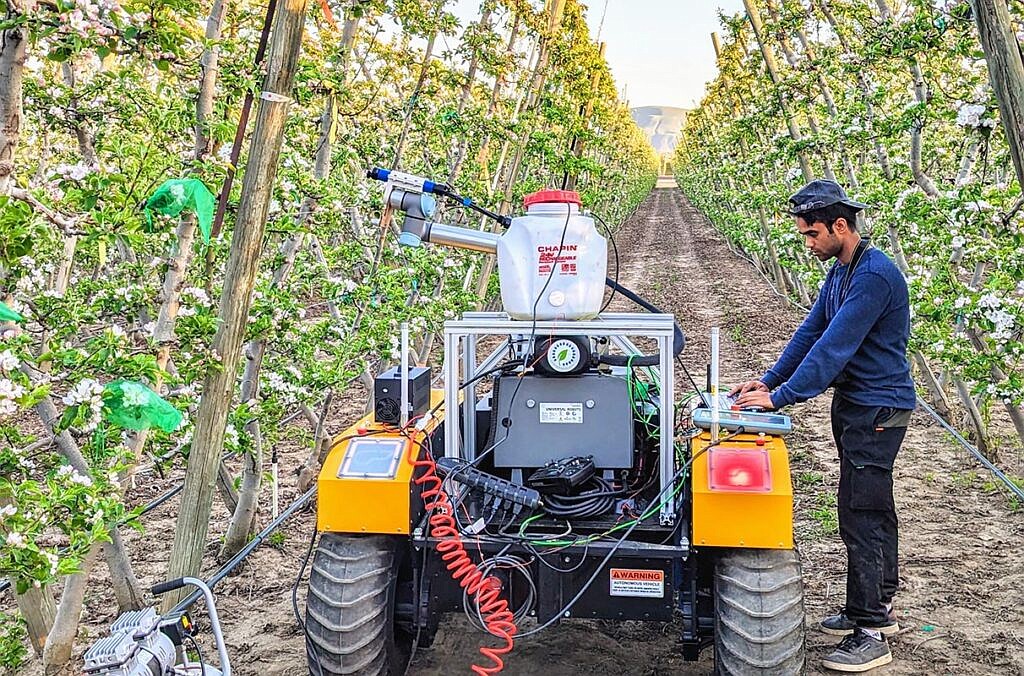Graduate training in ‘robot-human interface’ awarded NSF grant
Sara Zaske, WSU News & Media Relations, Contributed Report | basinbusinessjournal | UPDATED 1 year, 4 months AGO
PULLMAN — A new generation of engineers at Washington State University will learn not only how to build better robots but also how to make them work better with, and for, humans — thanks in part to a $3 million NSF grant.
The multidisciplinary WSU project, dubbed NRT‑LEAD for NextGen Robotics Traineeship in Leadership, Entrepreneurship, and Adaptive Design, comes at a time when a flood of new technology including robots, autonomous systems and artificial intelligence promises to transform the workplace. The funding will advance research and help educate 52 doctoral and master’s students in engineering and science with an interdisciplinary emphasis in entrepreneurship and applied psychology.
“We want to train people who know how to design a better robot and who understand how the user will be operating it. They also need to think about how the machine will impact the community where it will be employed,” said Prashanta Dutta, WSU professor of mechanical and materials engineering and the lead principal investigator on the grant.
Robots can be attractive options in industries where there are labor shortages and the work is difficult, hazardous, or inaccessible for humans, Dutta added. The NRT‑LEAD project will focus on three work areas relevant to the state of Washington: agriculture, nuclear cleanup, and underwater operations.
The project spans five WSU locations and several colleges, involving faculty from the Pullman, Vancouver, Everett, and Tri‑Cities campuses as well as the WSU Prosser Extension site. Graduate students will take courses and engage in field work that helps them better understand what researchers call the “human-machine interface.”
For instance, Tahira Probst, a WSU Vancouver psychology professor who specializes in workplace stress and job insecurity, will take students to visit agricultural sites to talk with workers directly about their concerns with using robots and fears of potentially losing jobs to them.
“It’s not just about developing new technology because oftentimes, technology outpaces the human side of things,” said Probst, who is a co-principal investigator on the grant. “We’re intentionally moving forward in how we train our graduate students in robotics and autonomous systems, so they take into account the human, equity, and social justice side of the equation as well as their place as leaders who are shaping the future of work.”
NRT‑LEAD will build on WSU research already underway in the three focus areas. In agriculture, university researchers are engaged with rural farming communities on the use of robots for pollination, pruning, fruit picking, and bird control. The goals are to enhance crop yield and quality; improve the long-term sustainability of the tree fruit industry; and reduce dependence on temporary labor while improving the workforce’s health and safety by decreasing exposure to common agricultural risks, such as falls from heights, heat exhaustion and insect stings.
In nuclear research, WSU Tri‑Cities faculty have advised in the ongoing cleanup of the Hanford Nuclear Site. They are also developing machine-based solutions such as an autonomous platform for nuclear waste monitoring using robots equipped with cameras and sensors to automate inspection of nuclear containers.
Underwater robotic developments range from autonomous submersibles to soft robots with propellers that mimic the movement of eels. NRT‑LEAD students will also have the advantage of WSU’s partnership with the U.S. Navy through the university’s engineering program in Bremerton.
“This project epitomizes one of the strengths of WSU, as it leverages the expertise that we have across many different campuses and different colleges,” said Probst.




